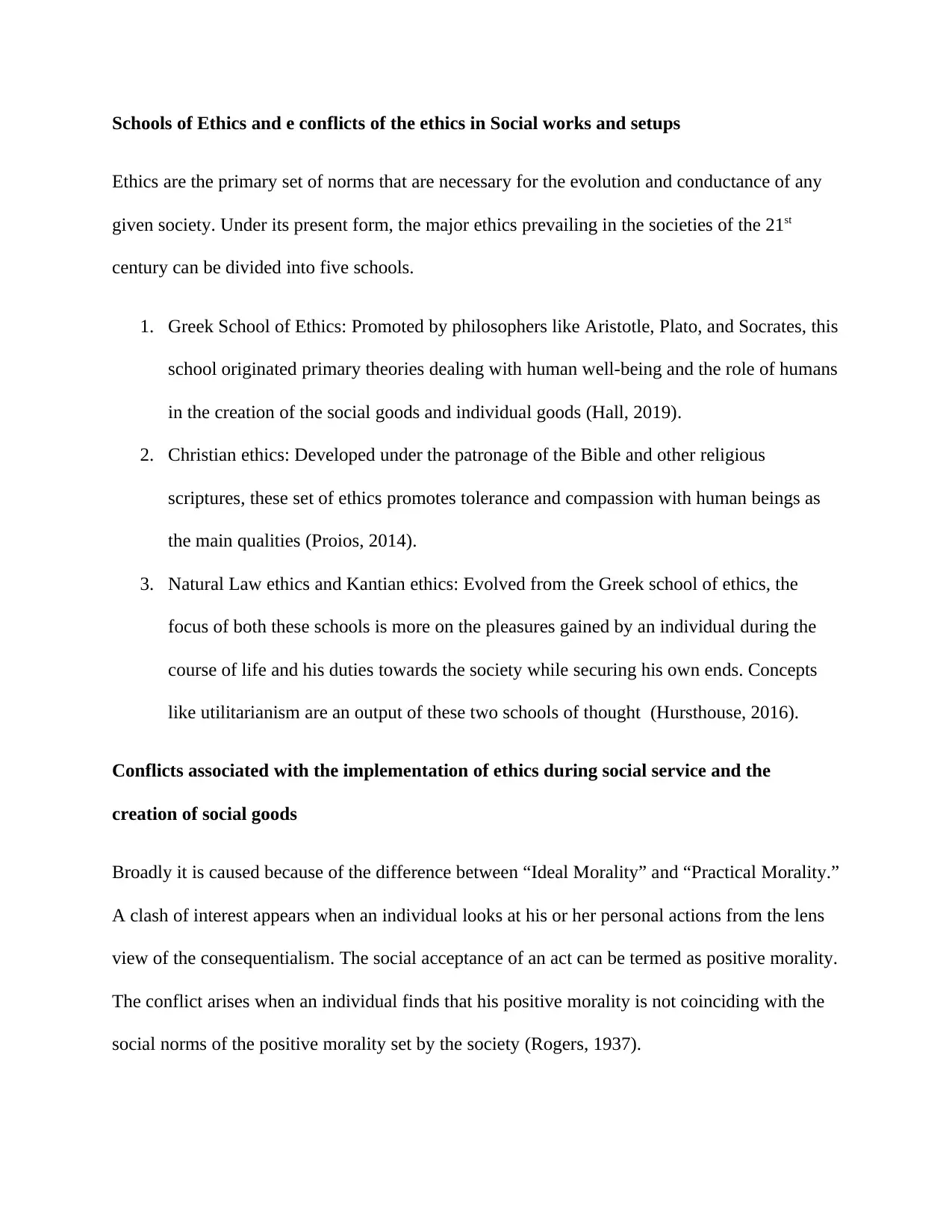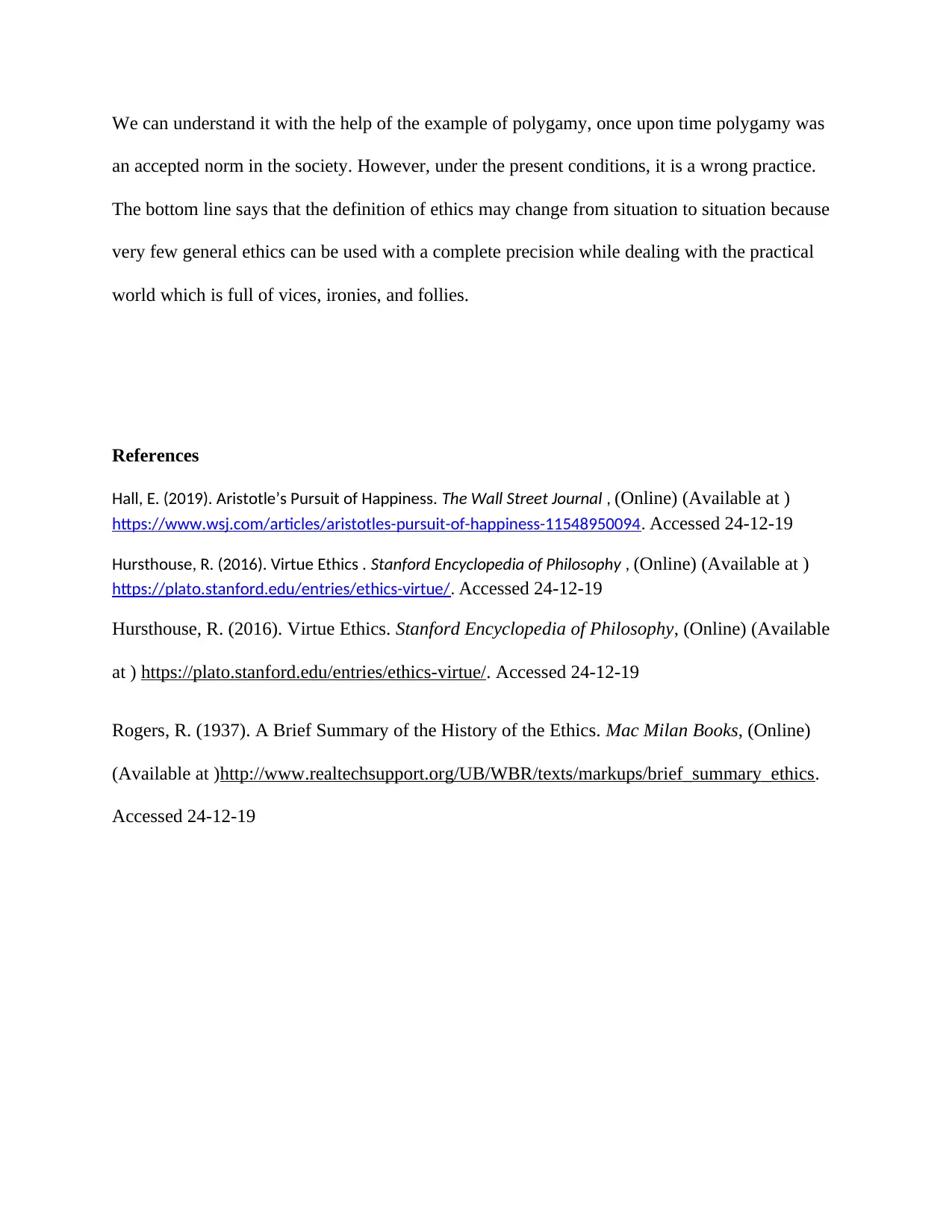Schools of Ethics, Conflicts, and Social Work: An Analysis
VerifiedAdded on 2022/09/03
|2
|519
|15
Essay
AI Summary
This essay delves into the core principles of ethics as they apply to social work, exploring the major schools of thought including Greek, Christian, Natural Law, and Kantian ethics. The essay examines the conflicts that arise when applying these ethical frameworks in practical settings, particularly the clash between 'Ideal Morality' and 'Practical Morality.' It uses examples, such as polygamy, to illustrate how ethical norms can vary across time and situations, highlighting the challenges of applying universal ethical principles in a complex world. The essay also provides references to support the analysis and arguments presented.
1 out of 2


![[object Object]](/_next/static/media/star-bottom.7253800d.svg)